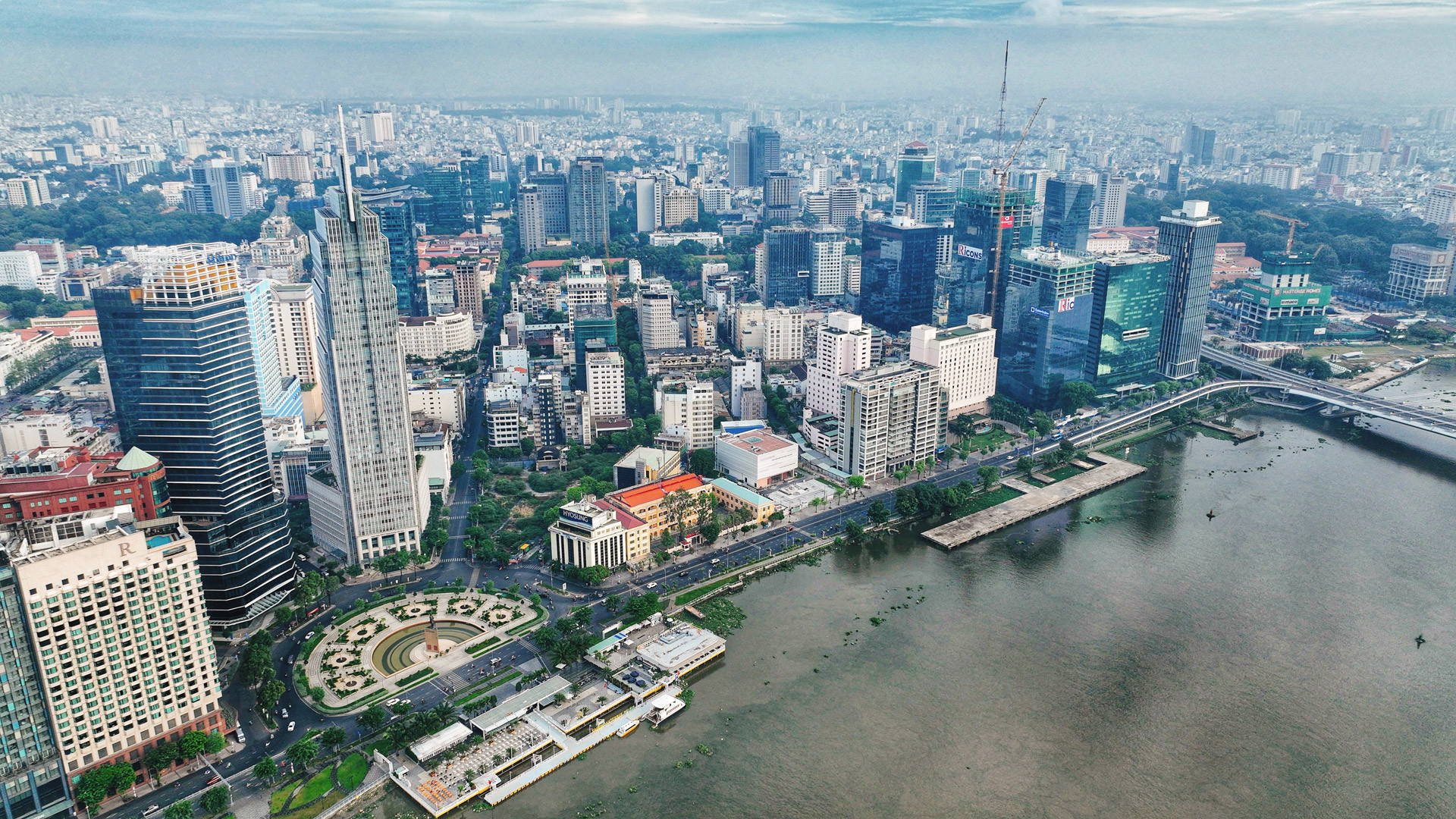
Economists say “there are always opportunity in danger”, stressing that this is the necessary approach which helps Vietnam continue economic reform in a more substantial way.
This is the driving force for the Ministry of Industry and Trade (MOIT) to implement the commitment that it will research and analyze the US Department of Commerce’s (DOC) report about Vietnam’s economy, to supplement and complete arguments before submitting dossiers to DOC on granting market economy status, a step to concretize the Vietnam-US comprehensive strategic partnership.
After doi moi (renovation), Vietnam has been consistent in carrying out a reform to turn the single-sectoral economy into multi-sectoral economy. The economy has been liberated from the state’s strict and rigid control, while people have freedom to trade and do business. In addition, Vietnam has signed 16 new-generation FTAs (free trade agreements), becoming one of the most open economies in the world.
Thanks to economic reform, Vietnam has become an example in hunger elimination and poverty reduction, with the hunger and poverty rate falling from nearly 60 percent in early 1990s to 3 percent now. Private domestic invested enterprises with official registrations have been growing steadfastly.
Vietnam has finished the underdevelopment period, becoming an average income country with a dynamic market economy which is integrating deeply into the global economy.
There is no doubt that the reforms and considerable progress in recent years are why 73 economies have recognized Vietnam as a market economy.
Economic Freedom of the World Index by Canadian Frazer Institute released late last year showed that Vietnam ranked 106th among 165 countries and territories. The position represented a four-grade promotion compared with the year before, a relatively big improvement compared with other regional countries.
Singapore, for example, ranked first in Southeast Asia, or one grade up, while Malaysia ranked 56th, 3 grades down, Thailand ranked 64th (+ 8), the Philippines 70th (- 3), Indonesia 74th (+ 1), Cambodia 78th (- 3) and Laos 107th (+ 1).
Vietnam scored well in four major components of the economic freedom index, including the government scale (83rd), legal system and asset rights (77th), good currency (128th), international trade freedom (98th). Meanwhile, it was ranked 103rd in terms of regulations on credit, labor and business
Spaces for reform
After 40 years of doi moi, Vietnam’s economy is still undergoing the transition with some shortcomings as follows:
First, the pricing mechanism of some products, such as petroleum, electricity, airfare and healthcare services still bears administrative intervention. However, to some extent, the intervention has benefited foreign invested enterprises (FIEs) as well, not only Vietnamese enterprises.
The electricity prices in Vietnam are believed the lowest in the world and this also brings benefits to FIEs, though the pricing scheme has not encouraged investment in the power sector and has hindered the effective operation of the electricity market.
Second, the protection of ownership and property rights still cannot be carried out thoroughly. In some places, land is recovered by the state at non-market prices.
Third, the state-owned economic sector still accounts for a large proportion of the national economy. Reports show that State owned enterprises (SOE) provide 87 percent of electricity output, account for 84 percent of petroleum retail market share, and provide 100 percent of raw gas and 70 percent of LNG market share, and 70 percent of fertilizer. SOEs (state-owned enterprises) are also dominating in the fields of telecommunications, transport, finance and banking.
Economists point out that only the goods market is regulated under the market mechanism, which observes the law of value, thereby ensuring the smooth circulation of goods. Meanwhile, the other markets, including energy, land, manpower and capital, are still influenced by administrative commands.
A report of the World Bank shows that the state still participates in many economic activities through SOEs, while the land and capital allocation bear the impact of administrative commands rather than market conditions.
The 9th Party Congress organized in 2001 adopted the concept of “socialist-oriented market economy” to describe Vietnam's economic system, which was later legalized in the 2013 Constitution.
According to the World Bank, the main viewpoint on Vietnam's socio-economic development is building a socialist-oriented market economy, with importance attached to harmony between market-based economic growth and social equity.
Tu Giang